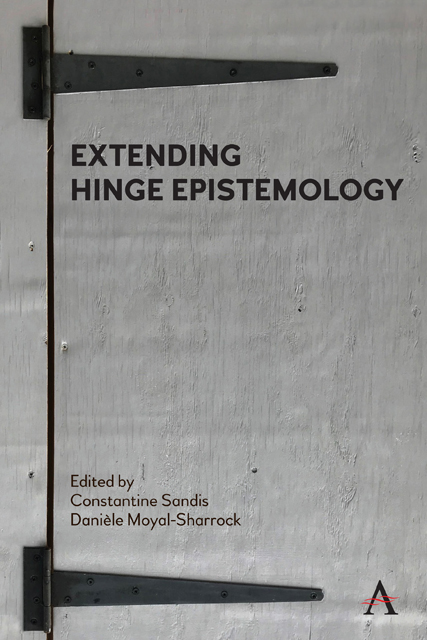Chapter Seven - Political Hinge Epistemology
Published online by Cambridge University Press: 09 December 2022
Summary
Introduction
Political epistemology is the intersection of political philosophy and epistemology. It is where the political and the epistemological meet. Broadly speaking, political epistemology takes many of our contemporary political problems to be intimately intertwined with social epistemological problems. Political epistemologists are interested in questions like:
• How does ignorance, ideology, or propaganda undermine political belief and action?
• How should we respond to political disagreement?
• Do the epistemic qualities of political agents or their decision procedures play a role in their authority?
• What is the role of truth in political decision making?
These questions are inextricably political and epistemic. How should we approach them? By far the dominant approach is veritistic epistemology, which takes truth to be the fundamental epistemic good and evaluates belief-forming processes and evidence by way of their relation to truth. In political epistemology, then, the emphasis is placed on just how well political agents track the truth. Another important approach is virtue epistemology, which in this context looks at the way political agents might become more intellectually virtuous or how group inquiry and deliberation can be epistemically improved in order to facilitate an intellectually flourishing society.
By way of introduction, hinge epistemology is an orientation in epistemology that approaches theoretical and social epistemological problems with the guiding idea that there are certain fundamental presuppositions of worldviews or belief systems that legitimate the reason-giving relations in those systems, but which are themselves immune to rational evaluation of the kind recognized by mainstream epistemology.
For example, we routinely rely on our experiences to form beliefs or to evaluate the attitudes of other people. Hinge epistemology says that if we did not presuppose that experience is reliable, our experiences could not intelligibly be presented as reasons for belief or other sorts of doxastic attitudes. Since our commitment to the reliability of experience plays such an essential reason-giving role in our belief systems, it is a hinge proposition. Hinge propositions, in turn, are those background presuppositions that frame our worldviews, limit our inquiries and constrain what we take to be good reasons for belief. ‘That is to say, the questions that we raise and our doubts depend on the fact that some propositions are exempt from doubt, are as it were like hinges on which those turn’, as Wittgenstein put it (OC 341).
- Type
- Chapter
- Information
- Extending Hinge Epistemology , pp. 127 - 148Publisher: Anthem PressPrint publication year: 2022

